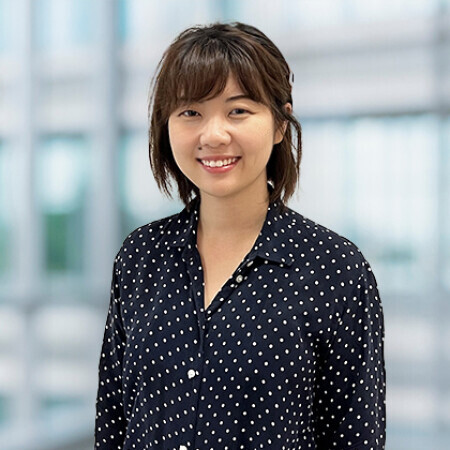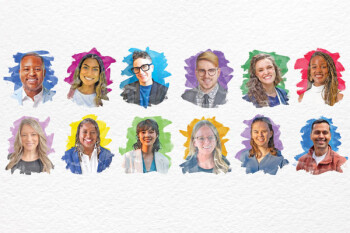PhD - Hearing and Speech Sciences
Vanderbilt University

Pumpki Lei Su
Assistant Professor - Department of Speech, Language, and Hearing
Research Interests: Language development and caregiver-child interaction in children with autism and bilingual children; language assessment in bilingual children.
972-883-2384
CR 1.322
Language Interaction and Language Acquisition in Children (LILAC) Lab
Curriculum Vitae
ORCID
Currently accepting undergraduate and graduate students
Professional Preparation
MS - Interdisciplinary Science in Neurodevelopmental Disabilities
Vanderbilt University
Vanderbilt University
BS - Communication Sciences and Disorders; Linguistics
Northwestern University
Northwestern University
Research Areas
Dr. Su’s research focuses on language development and caregiver-child interaction in children with autism spectrum disorder and bilingual children. Theoretically guided by the Transactional Model of Language Development, she focuses on the influence of child-level factors, input-level factors, and their interaction on language learning in her research. She uses various methods in her work, including observational methods, eye-tracking, naturalistic home language recordings, and language sample analysis to understand how children with different linguistic experiences acquire language.The long-term goal of her work is to (a) identify malleable aspects of caregiver-child interaction that optimize language outcomes in diverse groups of children, and (b) develop culturally and linguistically sensitive tools to assess language and identify language disorders in children from diverse backgrounds.
Publications
Dual language profiles in Spanish–English bilingual children with and without developmental language disorder 2025 - Journal Article
Parentese Elicits Infant Speech‐Like Vocalizations in Typically Developing and Autistic Infants 2025 - Journal Article
Timing of Intervals Between Utterances in Typically Developing Infants and Infants Later Diagnosed with Autism Spectrum Disorder 2025 - Journal Article
Perception and Interpretation of Contrastive Pitch Accent During Spoken Language Processing in Autistic Children 2025 - Journal Article
Awards
Early Career Contribution in Research Award - American Speech-Language-Hearing Association (ASHA) [2025]
Advancing Academic-Research Career (AARC) Award - American Speech-Language-Hearing Association (ASHA) [2023]
Appointments
Assistant Professor
University of Texas at Dallas [2022–Present]
University of Texas at Dallas [2022–Present]
Postdoctoral Researcher
University of Delaware [2020–2022]
University of Delaware [2020–2022]
Clinical Fellow in Speech-Language Pathology
Late Talkers Consulting [2018–2020]
Late Talkers Consulting [2018–2020]
Projects
Word learning from infant-directed speech in bilingual children
2022/01 Research on early language development has focused disproportionally on monolingual children. Given the prevalence of bilingualism worldwide and in the US, more research is urgently needed to generate language development theories that address diverse language learners and to better support language development in bilingual children. This study focuses on word learning from infant-directed speech (IDS; also known as "motherese"/"parenthese"/"babytalk") in Spanish-English bilingual toddlers and incorporates eye-gaze measures and all-day recording data.Word learning from infant-directed speech in autistic toddlers
This study focuses on word learning from infant-directed speech (IDS; also known as "motherese"/"parenthese"/"babytalk") in autistic toddlers. Similar to the project above, this study uses eyegaze methods and all-day recording data.Narrative sample analysis in Mandarin-English bilingual children
2022/08 This project aims to develop transcription and scoring protocol for narrative samples from Mandarin-English bilingual children.Additional Information
Speech Language Pathologist, Texas Department of Licensing and Regulations
License number: 120130Certificate of Clinical Competence in Speech Language Pathology (CCC-SLP)
Certificate of Clinical Competence in Speech Language Pathology (CCC-SLP), American Speech Language Hearing Association (ASHA) (ASHA #14114264)News Articles
2025 ASHA Awards Recipients
Announcement from the American Speech-Language-Hearing Association recognizing Dr. Pumpki L. Su as the 2025 recipient of the Early Career Contribution in Research Award, honoring outstanding scientific contributions to the field within the first decade of a research career.Early-Career Trailblazers in Audiology and Speech-Language Pathology
 ASHA Leader Early-Career Trailblazer highlight
ASHA Leader Early-Career Trailblazer highlight